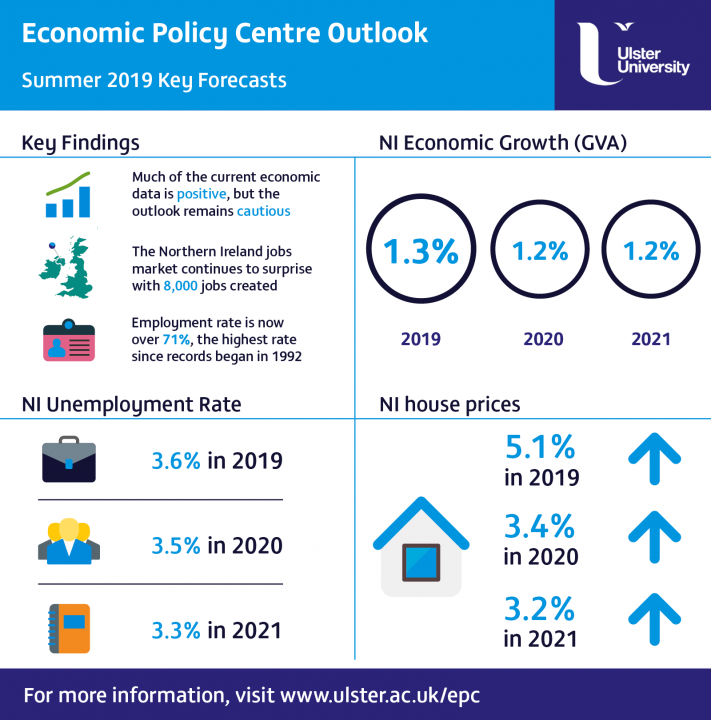The latest Ulster University Economic Policy Centre report highlights some major positives for the Northern Ireland tech economy, but predicts a cautious future outlook.The Northern Ireland employment rate is at a record high according to the latest Ulster University Economic Policy Centre report, with the economy creating a considerable number of new jobs this year. Real wages have also started to rise in many industries such as the tech sector, and much of the economic data presented is generally positive.
The local economy has created over 78,000 jobs since 2012 across a wide range of sectors, and momentum in this growth pattern is being maintained well. Despite all of these positives, the UUEPC's outlook following the Summer 2019 report remains cautious, with lower economic growth expected over the medium term. This is attributed to growing geo-political tensions worldwide creating an environment of uncertainty for businesses.
UUEPC Director Gareth Hetherington commented on the report: "It seems, economically, that we are in a permanent state of anticipation. Both locally and internationally, we have spent the last few years waiting for something to happen. We have been waiting for the return of Stormont, the Brexit deal to be agreed, productivity growth to finally pick up, an outcome to the US-Chinese trade dispute, the list goes on. These factors all create uncertainty, which is the enemy of business investment, and act as a brake on economic growth."
Part of the problem with employment statistics raised in the report is that recent growth in jobs has been in less secure types of employment such as zero hour contracts and temporary work. Part-time work which has increased by 16% in the past 10 years, and the number of temporary contracts used in industry has jumped by 29% in the same time frame. UUEPC are now undertaking research to determine whether people are choosing more flexible work or are simply being forced to accept less secure jobs.
Gareth Hetherington commented on this ongoing research: "The significant increase in part-time working and use of temporary contracts over the last 10 years has been seen as a cause for concern by some, but our research would suggest that in the majority of cases, this is as a result of choice. Only 1 in 8 people working part-time are doing so because they could not find a full-time job."
 Source: Written based on press release
Source: Written based on press release
About the author
Brendan is a Sync NI writer with a special interest in the gaming sector, programming, emerging technology, and physics. To connect with Brendan, feel free to send him an email or follow him on Twitter.
Got a news-related tip you’d like to see covered on Sync NI? Email the editorial team for our consideration.
Sign up now for a FREE weekly newsletter showcasing the latest news, jobs and events in NI’s tech sector.

